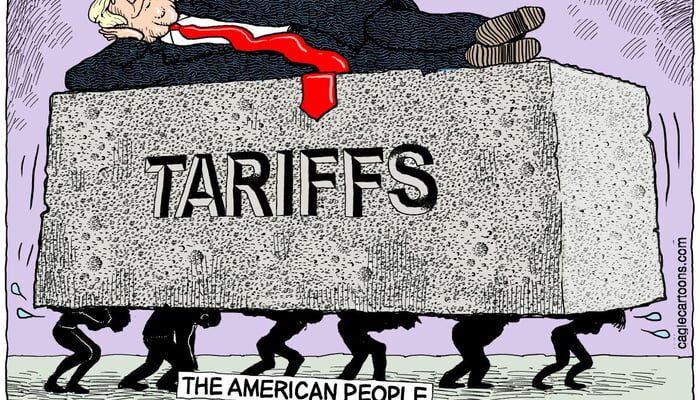In a move that has reverberated across international borders, the United States has enacted a significant change to its import regulations, effectively abolishing the long-standing duty-free threshold for small parcels valued under $800. Effective August 29th, a policy once intended to streamline low-value imports and facilitate consumer access to global markets has been reversed, plunging the intricate world of international e-commerce and postal services into an unforeseen crisis. What was initially framed as a strategic maneuver to rebalance trade relationships, particularly with China, has instead unleashed a cascade of logistical nightmares, impacting virtually every participant in the global supply chain, from remote consumers to major national postal operators.
The Policy Shift: A Closer Look
The core of the new regulation is straightforward: any goods purchased from a foreign online store or marketplace, regardless of their modest value, will now be subject to customs duties based on the tariff rates of their country of origin. The sole exception carved out for “gifts” offers little solace, capping their duty-free status at a mere $100. Prior to this shift, millions of packages daily entered the US under the generous $800 exemption, a system that, while perhaps exploited, undeniably fueled a vibrant cross-border shopping ecosystem. This sudden imposition of “micro-tariffs” represents a fundamental re-evaluation of how the US engages with global consumer trade.
Unintended Consequences: The Global Logistical Freeze
The immediate aftermath of this policy announcement was swift and dramatic. Rather than simply levying new taxes, the change exposed a critical flaw in global logistics infrastructure. Postal operators worldwide – from the bustling hubs of South Korea and Germany to the quieter routes of Australia and Finland – found their systems fundamentally unprepared. The challenge was not merely calculating a new fee, but doing so for millions of individual, often low-value, packages. Their existing frameworks were simply not designed to process such granular taxation on an unprecedented scale. Finland’s national postal service, Posti, even ceased all mail shipments to the US, as airlines, wary of the burgeoning customs complexities, refused to transport any postal items. It was a global logistical freeze, triggered by a seemingly domestic policy adjustment.
“A policy ostensibly designed to simplify trade and protect domestic markets has, paradoxically, woven a new tapestry of logistical nightmares and inflated consumer bills, proving that sometimes, the shortest path to a goal is anything but straight.”
The Boomerang Effect: Americans Feel the Pinch
While the stated primary objective of the policy was to curb Chinese imports, the reality on the ground quickly revealed a different story. The “boomerang effect” became palpable for ordinary American consumers. Online marketplaces like Amazon, heavily reliant on a global network of sellers, soon saw prices for various goods subtly, and sometimes not-so-subtly, increase. Stories circulated of shopping cart totals ballooning from modest sums to significantly higher figures once “delivery and duties” were factored in. Even popular Chinese e-commerce platforms, which had become mainstays for bargain hunters, began to adapt, signaling that duty charges would apply unless goods were already warehoused domestically. The irony is stark: a measure intended to protect American interests has, for many, simply translated into higher costs and reduced access to affordable international goods.
Some argue that for many Americans, this shift will have minimal impact, citing the abundance of domestic alternatives. Indeed, for essential goods or highly specific American-made products, cross-border shopping may be less critical. Yet, the vast and varied landscape of consumer preferences and niche markets means that millions still rely on international suppliers for unique items, specialized components, or simply more competitive pricing. For these consumers, the policy represents a tangible erosion of purchasing power and choice.
Economic and Political Undercurrents
Beyond the immediate logistical chaos and consumer inconvenience, this tariff shift carries broader economic and political implications. Economists warn of potential inflationary pressures as import costs trickle down to retail prices across various sectors. For the architects of such policies, particularly in an election cycle, consumer dissatisfaction can quickly translate into political vulnerability. The historical context is not lost on observers; similar attempts at protectionist measures have, in the past, faced their own set of challenges and reversals due to impracticality or adverse domestic impact.
This move is a chapter in the ongoing narrative of global trade dynamics, a narrative increasingly defined by a tension between free-market principles and protectionist impulses. It underscores the intricate interdependencies of modern global commerce, where a single policy lever, pulled in one nation, can send seismic waves through the systems of many others. The $800 boomerang, aimed at one target, has demonstrably altered the flight path of international shipping and, in doing so, offered a stark lesson in the complex calculus of global economics.








